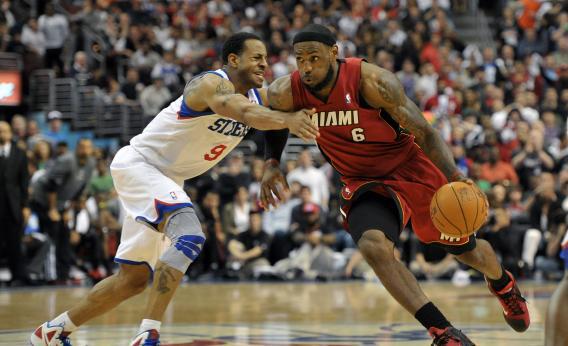Mark Cuban and David Stern both think the NBA should consider changing the rules to require players to do more than one year of college before earning a salary in exchange for playing professional basketball.
The logic is fairly impeccable. It used to be the case that 18 year-olds were eligible to play in the NBA, and teams would often face a tough dilemma regarding the most talented high school seniors. It was extremely unlikely that kids that young would actually perform well as rookies. And yet teams that passed up on drafting not-ready-yet rookies might find themselves permanently missing out on the services of top talent when they aged. So the league changed the rules and now requires players to spend at least one season playing “amateur” basketball as an uncompensated employee of a college or university on what otherwise gives every appearance of being a professional basketball team. That’s a smart deal for the owners. Part of the operation of the NBA cartel is that rookies have no choice as to which firm to go work for; they are only allowed to sign with the team that drafted them. That means rookies also can’t negotiate for salaries. Consequently, anyone who’s good while playing on a rookie contract is severely underpaid. The logic of the situation is that outsourcing as much of the early player development to the NCAA is smart for owners. Indeed, since NBA players tend to peak in playing ability in their mid-twenties it would actually make a fair amount of sense for the owners to require the players to graduate from college. That way guys on rookie deals would be 23-26 and being severely underpaid in their prime years. Then you’d get probably one contract extension, and by the time that deal’s over guys would be in their thirties and on the decline, and you could forget about them.
That’s all “makes sense” in the sense that it makes sense for owners of firms in the same industry to collaborate together to find ways to screw over their workers. Outside the context of professional sports we would deem this kind of labor market cartel to be completely unacceptable. Law firms don’t “draft” top prospects out of law school; they recruit them. But athletes need to just go where they’re told.
